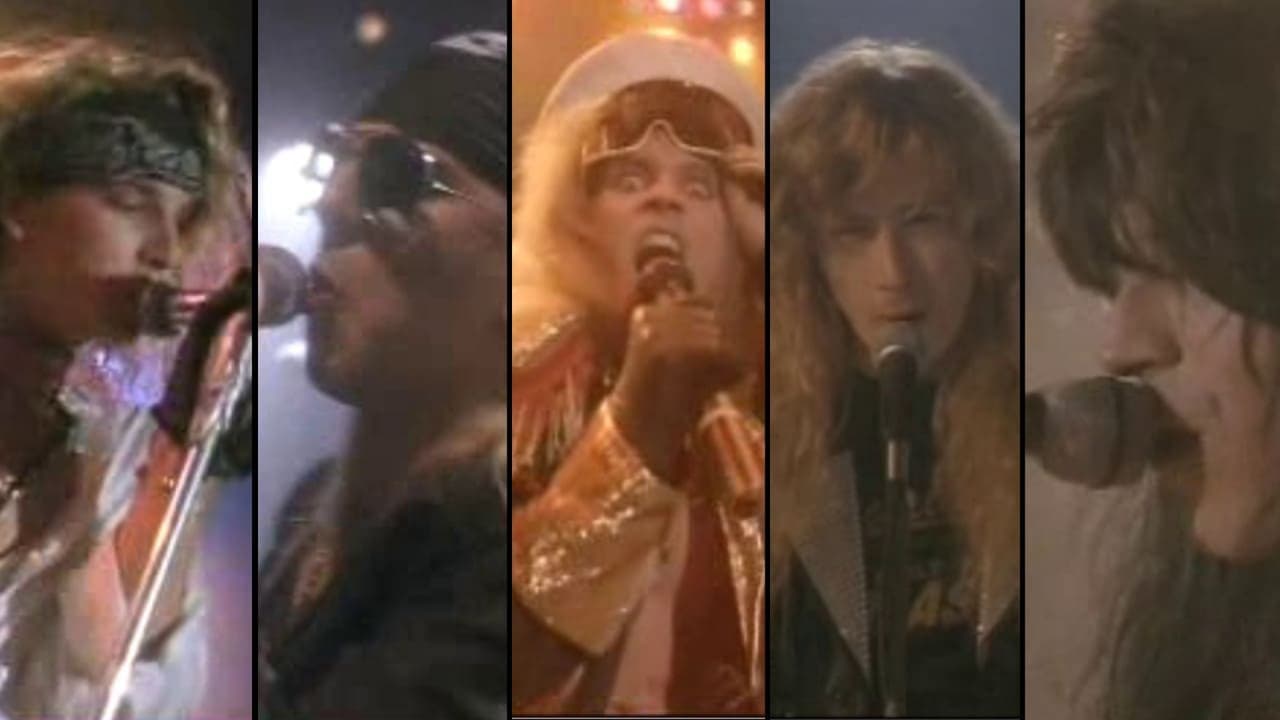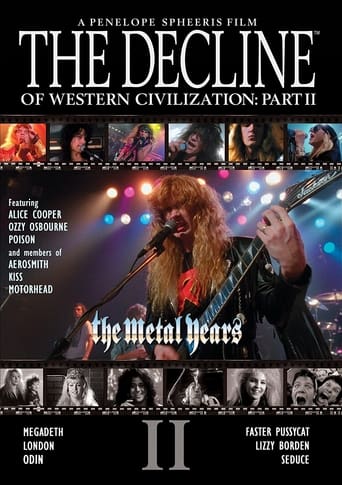

If you watch this movie expecting to see an intelligent appraisal of heavy metal you are in for an enormous disappointment. This mostly an embarrassing parade of C grade LA Glam bands that never made it, more interested in their looks and "P***y" than the music. Lemmy, Alice Cooper, Megadeth, Ozzy and Steve and Joe from Aerosmith are the only voices of reason. Chris Holmes from WASP is pitiful in his pool scene, and just sad guzzling bottles of smirnoff. Totally USA centric The title of the metal years conjours images of Deep Purple, Led Zeppelin, Black Sabbath, Judas Priest, not "London" or 'Seduce" (Who!!?) This is a lovefest for the LA scene of the late '80's. Crowning glory, Paul Stanley with 3 groupies draped across him, gazing adoringly at him while he talks about how transient they are. Pathetic. Just made me embarrassed to be associated with the genre
... View MoreI discovered this film after hearing Megadeth was in it so I tracked down a PAL format VHS to DVD rip of the movie - needless to say, it suffers from the poor quality of the rip but still very enjoyable Anyways, I recently caught it again in hi def on IFC Films and reminded me why I like this so much - so many people who think they can make it by imitating others so much so that no one can tell them apart - great documentary and should be mandatory watching for any band that is up and coming (to keep their heads out of the clouds).One of the things I really enjoyed the most out of this, though, was to look back now and most if not all of the unestablished bands didn't even make anything out of themselves... Really sad, but great to see how things change over time
... View MoreKramsey hit the nail on the head. Take it from someone who was there as well. I had the leather pants, dangling earrings, loose tank tops and of course one kick a@@ spiked mullet. I didn't play in a band but I looked like I did, and probably got laid as much as those guys did. Oh yeah, the movie was a blast to watch. The people in Odin probably work in an office somewhere shuffling faxes and emails or worse yet, still trying to make it a pub somewhere in Cleveland, Ohio. I remember people like that. It's interesting to find out Ozzy's juice scene was staged. That kind of sucks a little bit. I would have hoped for more authentic footage from a documentary. That in itself makes you question whether vodka was in his bottle or not. Looked convincing at the time. I knew guys that took 3 hits of acid in a night, so I'm sure it is quite possible he was that messed up in his self loathing statements in front of his mother... Ah...the good old days. Peace.
... View Morenothing but fond memories of this gem. didn't it just cheer you up ? the sheer "we are gonna make it" "big hair metal is gonna live forever" and "of course we'll get a record deal"..with that much gusto behind it all..i almost believed most of them !!! great to look back at shallow bands with even shallower fans...great ideals such as "we're in it for the girls" etc...love it!! OK , i know some of the more obtuse interviewees really should have been left on the editing room floor but in retrospect if you removed some of these wizards then it wouldn't be half the film it is...it needs the looneys to maintain the levity and balance. from faster pussycat making themselves look as straight as john inman at a hitchens closing down sale to the monumental lemmy giving it the "run it up the flagpole, see who salutes it" anecdote, as a whole the film just.......works.
... View More